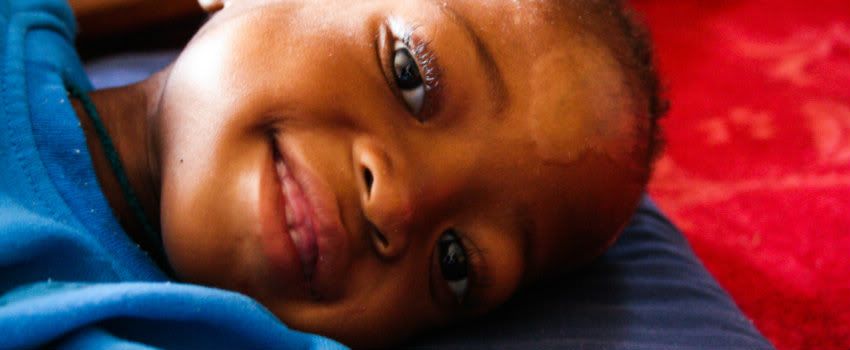++++++++++++++++++++++++++++++++++++++++++++++++++++++++++++++++++++++++

 As a former Gender
Studies and Pre-Med major, and a long time proponent of women's health and
empowerment, it is safe to say that I am personally invested in this topic.
In addition to my personal interests though, the international community
has also come to hone in on women as the newfound key to success in development.
Studies have shown that in developing countries, directing initiatives
toward women proves to have a significant return on investment for both
families and communities. This is not to say that men aren't important
too, they are very much central to the picture, however, through recent focuses
on women, education and health initiatives have found new success which begs
for continued exploration.
As a former Gender
Studies and Pre-Med major, and a long time proponent of women's health and
empowerment, it is safe to say that I am personally invested in this topic.
In addition to my personal interests though, the international community
has also come to hone in on women as the newfound key to success in development.
Studies have shown that in developing countries, directing initiatives
toward women proves to have a significant return on investment for both
families and communities. This is not to say that men aren't important
too, they are very much central to the picture, however, through recent focuses
on women, education and health initiatives have found new success which begs
for continued exploration.  Traveling to remote
villages with the TTL outreach team, I have begun interviewing mothers about their
own health, as well as their knowledge and behaviors regarding maternal health,
hygiene, and nutrition. We sit and talk,
sometimes, well most of the time, straying from the interview questions, as
they tell me about their health, their knowledge about caring for themselves
and their children, and their obstacles in doing so. With this data, I plan to create a baseline
assessment of health knowledge and behaviors among the Mokhotlong mothers, and explore
any possible correlation between mothers’ health knowledge, and the health of
their children. I’ve had a bit of time
now to assimilate to Basotho life, tasting makoenas (the local bready treat), paying
my dues attempting to converse in Sesotho, and spending time learning the
routine of TTL outreach.
Traveling to remote
villages with the TTL outreach team, I have begun interviewing mothers about their
own health, as well as their knowledge and behaviors regarding maternal health,
hygiene, and nutrition. We sit and talk,
sometimes, well most of the time, straying from the interview questions, as
they tell me about their health, their knowledge about caring for themselves
and their children, and their obstacles in doing so. With this data, I plan to create a baseline
assessment of health knowledge and behaviors among the Mokhotlong mothers, and explore
any possible correlation between mothers’ health knowledge, and the health of
their children. I’ve had a bit of time
now to assimilate to Basotho life, tasting makoenas (the local bready treat), paying
my dues attempting to converse in Sesotho, and spending time learning the
routine of TTL outreach.  My first few experiences
on outreach have been difficult to describe.
I have witnessed extreme poverty amidst a backdrop of breathtaking
scenery, beautiful and artfully crafted Sesotho huts, shocking medical cases
that I felt helpless walking away from, and an appreciation of life at its simplest
form. I was nervous when I first began
my study, worried that something might go wrong, or that mothers might not want
to talk to the white ‘ausi’ from the States.
But things have gone surprisingly well, and I feel as though I continue
to learn more and more everyday, about Basotho life and culture, the mothers
whom I’m studying, and even a bit about myself.
I hope that in some way, I can make a difference with my research
here. At the very least, I hope that my
research findings will have positive implications for future health education
initiatives both within this population in Lesotho, and for the greater
community of women in rural Southern Africa.
My first few experiences
on outreach have been difficult to describe.
I have witnessed extreme poverty amidst a backdrop of breathtaking
scenery, beautiful and artfully crafted Sesotho huts, shocking medical cases
that I felt helpless walking away from, and an appreciation of life at its simplest
form. I was nervous when I first began
my study, worried that something might go wrong, or that mothers might not want
to talk to the white ‘ausi’ from the States.
But things have gone surprisingly well, and I feel as though I continue
to learn more and more everyday, about Basotho life and culture, the mothers
whom I’m studying, and even a bit about myself.
I hope that in some way, I can make a difference with my research
here. At the very least, I hope that my
research findings will have positive implications for future health education
initiatives both within this population in Lesotho, and for the greater
community of women in rural Southern Africa.

